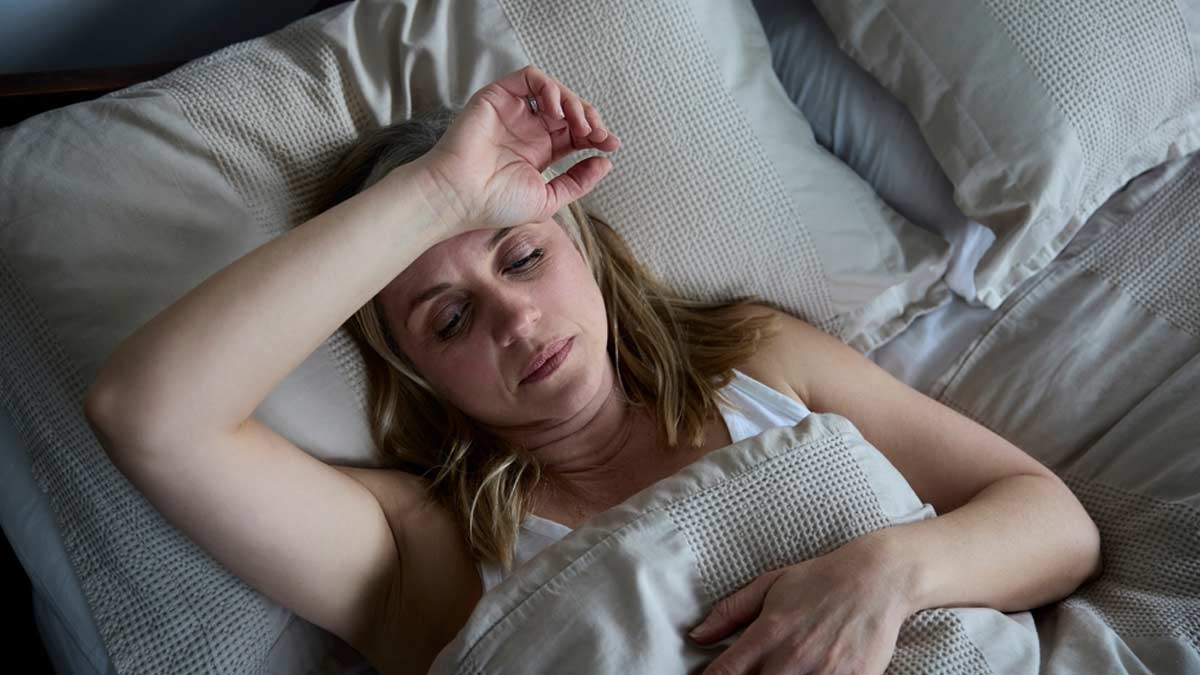
When you sit down to understand the science behind body odour, you realise that there are several things to consider. Most of us believe that sweat leads to body odour, but that's not entirely true. It is actually the bacteria on our skin that break down sweat and release distinct smells. More surprising is the fact that our sweat is odourless.
Table of Content:-
Many factors can activate the process of creating body odour, including stress, puberty, and hormones. However, reproductive transitions like menopause can play a significant role in changing body odours.
Speaking with the OnlyMyHealth team, Dr Tejal Deshmukh, Consultant - Obstetrics and Gynaecology, Manipal Hospital, Baner, Pune, sheds light on the same and explains why it happens.
Understanding Menopause

Just like menstruation, menopause is a natural process in the body that marks the permanent end of the menstrual cycle. It mostly occurs in women between the ages of 45 and 56 years; however, about 5% of women experience early natural menopause, occurring between the ages of 40 and 45 years, according to StatPearls Publishing.
Possible Explanations Behind Body Odour Changes During Menopause
According to Dr Dekhmukh, oestrogen levels in the body drop during menopause. Oestrogen is one of the main female sex hormones responsible for puberty, the menstrual cycle, pregnancy, bone strength, and other functions of the body.
Simultaneously, there is relatively high testosterone, which is otherwise produced by the ovaries in small amounts. This can lead to increased sweating and hot flashes, which can boost sebum production and alter body odour, according to the doctor.
It is also important to note that these hormonal shifts attract more bacterial growth, giving rise to body odour during menopause.
Another possible explanation could be increased anxiety during menopause. According to a study published in the American Journal of Transnational Research, anxiety affects 25% of menopausal women.
As we all know, sweating is a common response to stress or anxiety. This sweat, especially from apocrine glands, can be more susceptible to a stronger odour after bacterial breakdown. Hence, menopausal women are more prone to body odour changes.
How To Know If Changes In Body Odour Is Due To Menopause

Besides body odour, there are many other symptoms of menopause that can help identify the condition. These include:
- Absence of periods
- Hot flashes
- Vaginal dryness
- Chills
- Night sweats
- Sleep problems
- Mood changes
- Weight gain
- Thinning hair
- Dry skin
- Loss of breast fullness
Also Read: Signs and Symptoms of Menopause in Women
Tips To Manage Menopausal Body Odour

Sharing a few tips to manage menopausal body odour, Dr Deshmukh lists:
- Regular bathing with antibacterial soap, especially keeping the armpits and groins clean.
- Shaving armpits and pubic hair regularly
- Using clean clothes and wearing appropriate clothing, especially in summers like cotton clothes and loose-fitting clothes
- Having a bath after exercise
- Having a bath twice in the summer seasons
- Using topical antiperspirants
- Maintaining a healthy weight
Conclusion
Many factors, ranging from hormonal fluctuations to increased sweating during menopause, can contribute to shifts in body odour. However, during this time, adopting healthy habits, such as regular bathing, wearing breathable fabrics, and maintaining a balanced diet, can reduce the risk. It is also important to stay connected with a healthcare professional who can provide insights and personalised solutions to manage menopausal symptoms effectively.
Also watch this video
How we keep this article up to date:
We work with experts and keep a close eye on the latest in health and wellness. Whenever there is a new research or helpful information, we update our articles with accurate and useful advice.
Current Version